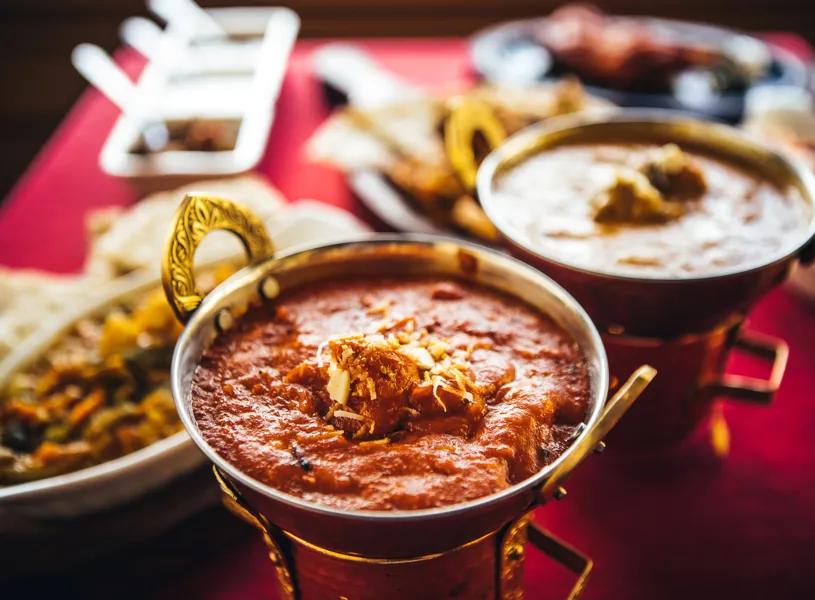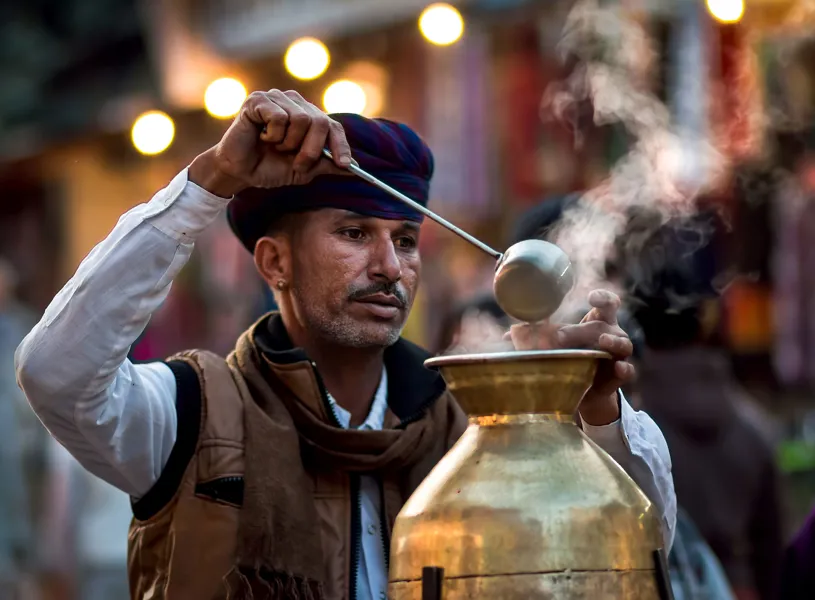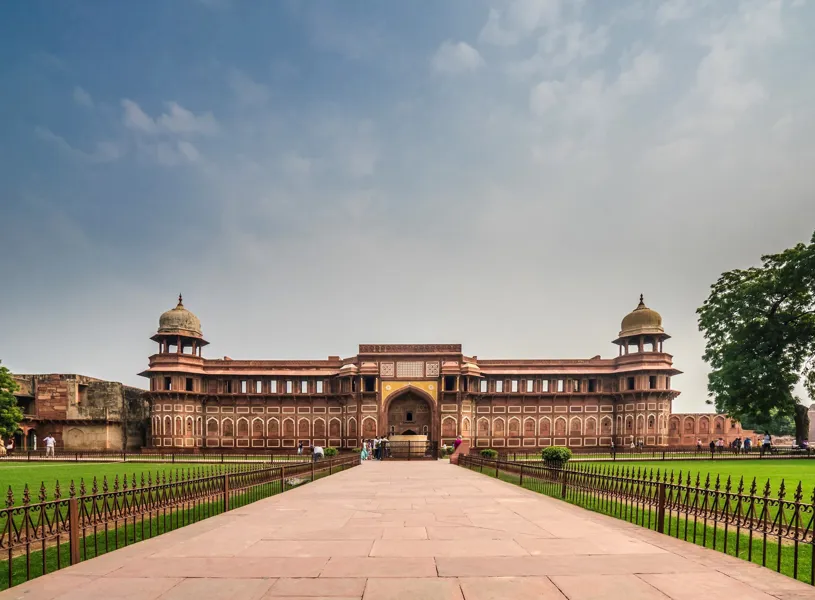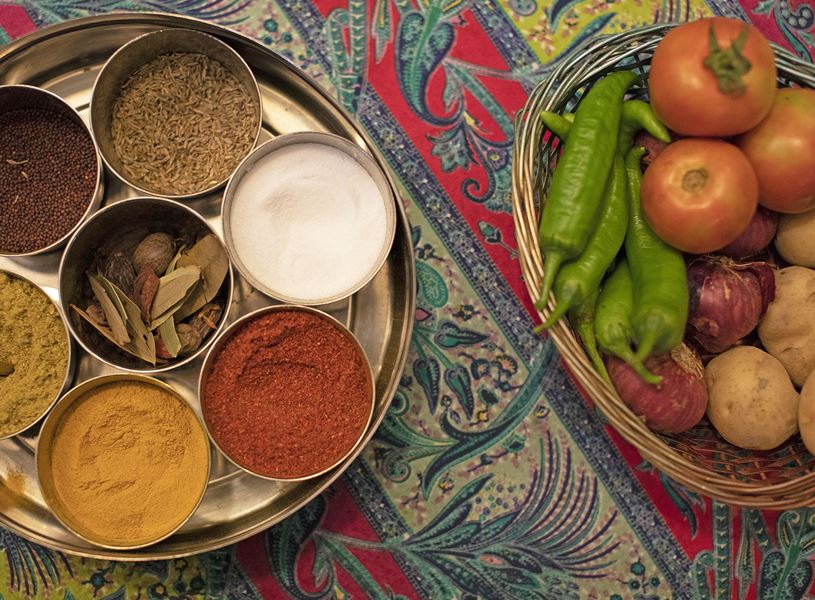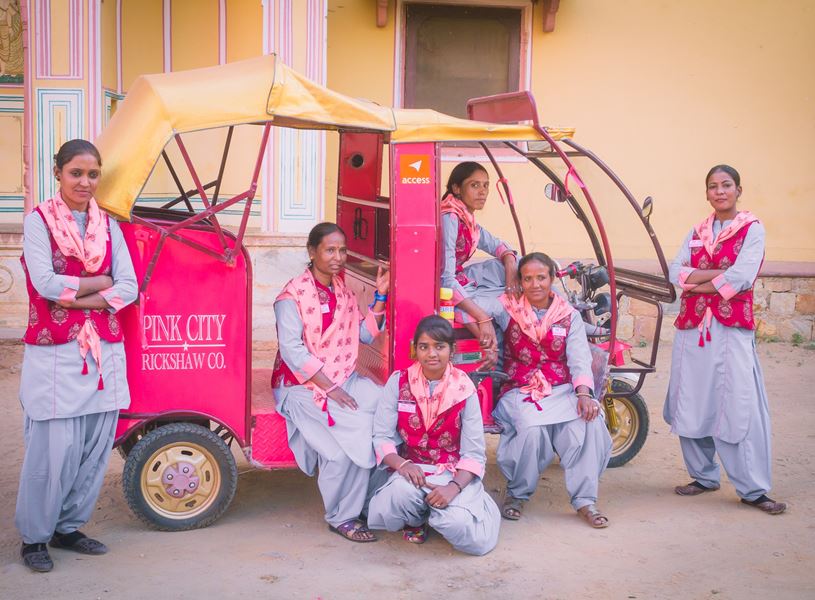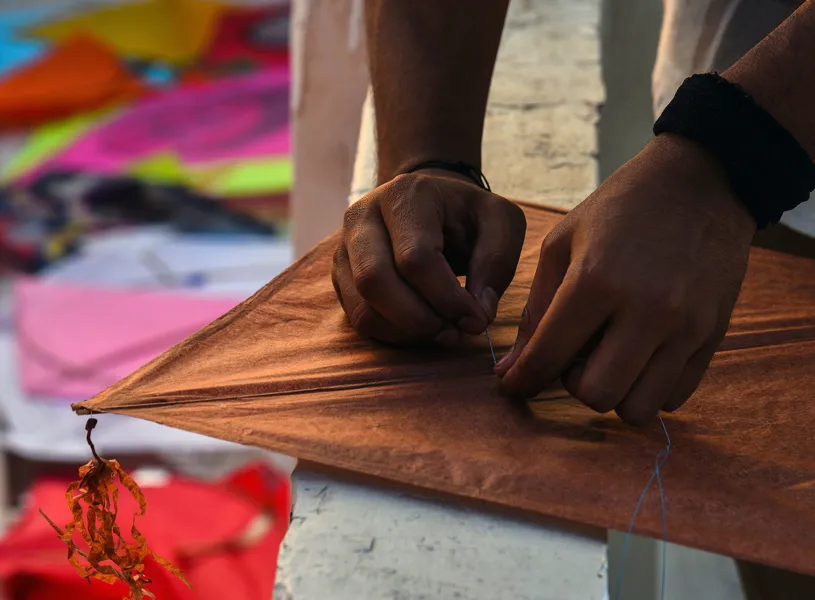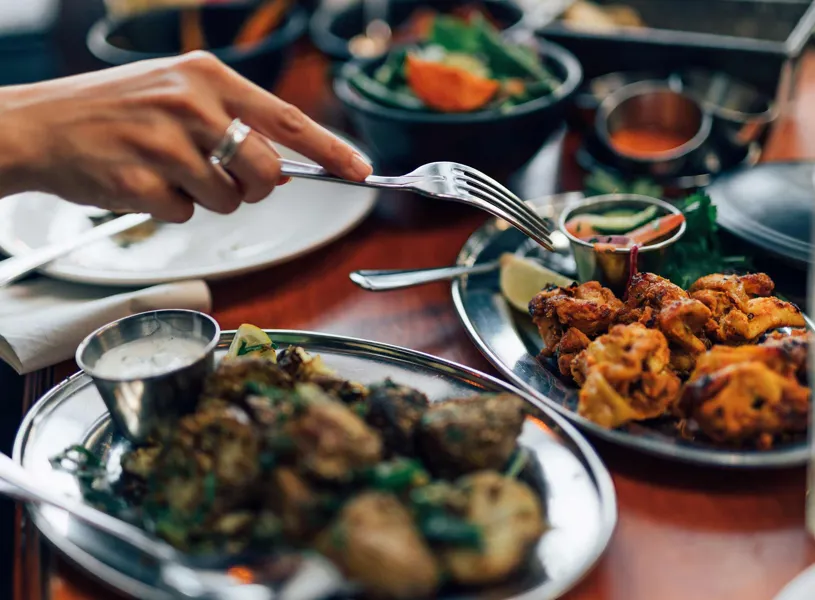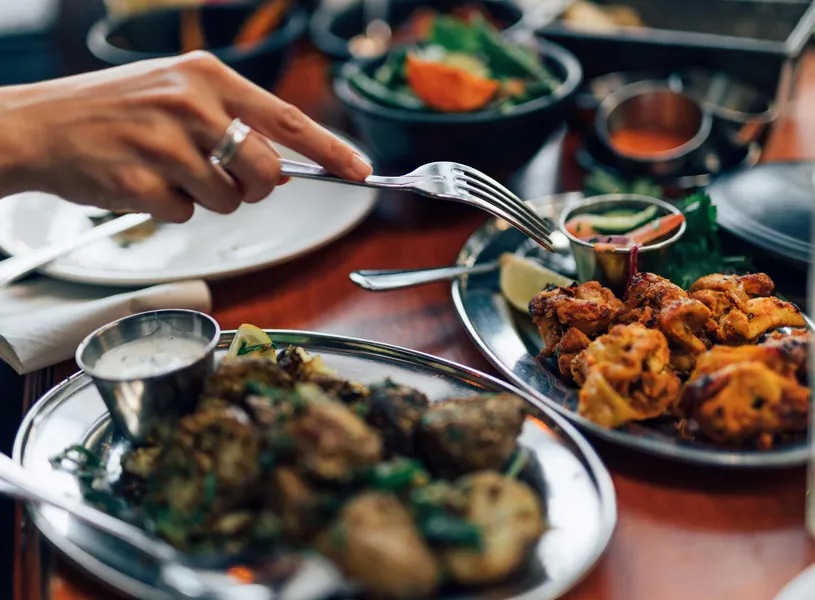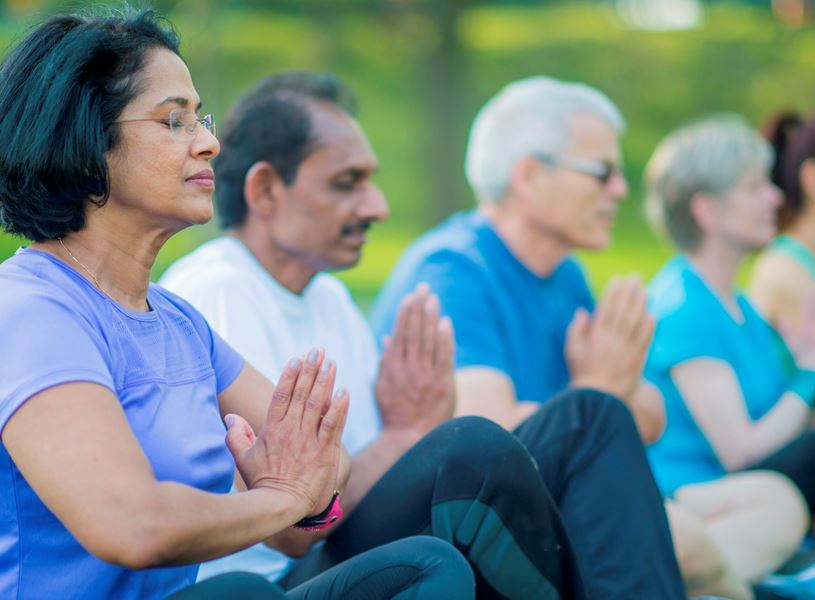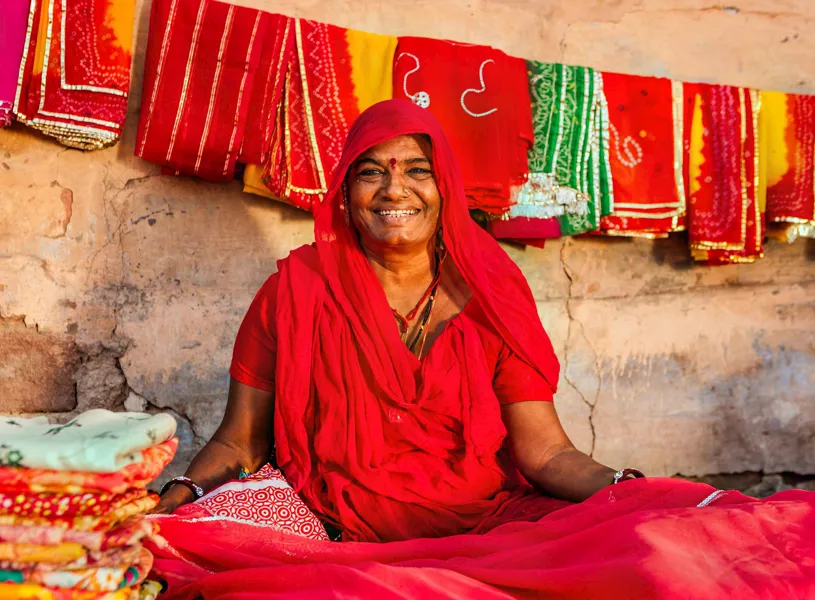Embark on a culinary adventure as you savor the bold and aromatic flavors of traditional North Indian cuisine at a local restaurant. Toast the adventure ahead with a glass of wine or locally brewed beer as you get to know your Travel Director and fellow guests - a delicious start to your journey through India.
Classic India with Tiger Reserve
11 Day India Tour to Delhi, Agra, Jaipur & Udaipur

Premium Tours by Insight Vacations
If you typically fly business with extra legroom and appreciate 4 and 5-star hotels and one-of-a-kind experiences, Insight Vacations is a great fit for you. Get all the sights and insights, up close and personal on these premium guided tours and enjoy business class seating on luxury motorcoaches designed just for Insight Vacations, with double the legroom and personal space of a regular touring coach. Engage your curiosity with hand-selected experiences, immerse yourself in local culture with superior dining and stay in style at highly rated hotels. Every tour includes at least one MAKE TRAVEL MATTER® Experience offering you the chance to experience the culture and community visited.
New Tours
Check out our collection of brand-new and exciting trips, now on sale! From fresh destinations to thoughtfully redesigned itineraries, these guided vacations offer unforgettable experiences designed to connect you to the heart of each destination.
View All New ToursUncover the enduring legacy of India’s maharajas on a journey through Rajasthan, a land of walled cities, palatial forts and timeless traditions. This India guided tour travels in style from Delhi to Udaipur, standing in awe before the Taj Mahal at sunrise, encountering tigers in Sariska Tiger Reserve and exploring Jaipur’s vibrant Pink City by e-rickshaw with pioneering women drivers on a MAKE TRAVEL MATTER® Experience. Along the way, visit majestic forts, walk through historic villages and dine in royal residences. With immersive cultural moments, regional cuisine and handpicked heritage stays, this tour brings you up close and personal with the spirit of India’s regal heartland.
- Average group size
- average 33
- Premium Tours by
- Insight Vacations
- Travel style
- New Tours

Low Deposit & Flexible Booking Low Deposit from $200 + no change fees See flexible booking terms >
Best Value Why touring is the easiest way to travel Learn more >
Current Entry Requirements Check your destination View Entry Guide >
Select your date
Special Departure
Included Highlights
Top rated highlights
Learn more about the landmarks, history and culture that makes your destination special.
Authentic Dining
7 Dinners, 10 Breakfasts, 3 Lunchs
Hand-Picked Hotels
Stay at highly rated hotels in desirable locations offering superb service and superior rooms with comfy beds to rest in.
Optional Experiences
Sign up on tour for additional experiences that have been curated by your Travel Director from their own in-depth local knowledge.
India
- Official Languages across India: The official language of India is Hindi. Hindi is one of the 22 officially recognized languages of India and is widely spoken across the country. It serves as the primary language for communication, government, education, and media in many parts of India. In addition to Hindi, India recognizes several other regional languages as official languages at the state and union territory levels. These include Bengali, Telugu, Marathi, Tamil, Urdu, Gujarati, Kannada, Odia, Malayalam, Punjabi, Assamese, Maithili, and others, depending on the respective states and regions.
- Currency used in India: The currency of India is the Indian Rupee (₹).
- Capital City:: The capital of India is New Delhi.
- Time Zone(s) in India: Indian Standard Time (IST)
Twin Room All listed pricing in the brochure and website is per person based on two people sharing a twin room (a room with 2 twin size beds). A double bed can be requested at time of booking if preferred.
Solo Supplement If you are traveling alone and require a single room, there will be an additional Solo Room Supplement added to your price.
Triple Room Rooms that sleep 3 people are available on some itineraries. The third bed is typically a pull out or cot.
India passport, visa, and entry requirement information for US citizens.
- Passport: Your passport should have at least two blank pages for entry stamps. Your passport is valid for at least six months beyond the conclusion of your trip.
- Visa Requirement: A Tourist Visa is required to enter India. Learn more about obtaining a visa for India.
- Entry Requirements: You can see the most up-to-date entry requirements for the destination(s) you’ll visit on tour by going to getours.com/travel-requirements-restrictions.
India has a diverse range of climates due to its size and varied topography. In general, India experiences a tropical monsoon climate, with distinct wet and dry seasons. The country has four major seasons: winter (December to February), summer (March to May), monsoon (June to September), and post-monsoon (October and November). The weather varies significantly across different regions, with the northern parts experiencing cold winters and hot summers, while the coastal areas have a more moderate and humid climate. The monsoon season brings heavy rainfall to most parts of the country, crucial for agriculture but can also lead to flooding in some regions. India's climate is also influenced by the Himalayan mountain range in the north, which creates cooler temperatures and alpine conditions in higher elevations.
On-Tour Luggage & Carry-On Bag Size Limits for Asia Tours
Luggage: Each guest traveling may bring one suitcase no larger than 30” x 18” x 10." For internal flights within Asia tours, there is generally a 44-lb luggage allowance.
Carry-On Bag: *Restricted to one piece per person, not to exceed 12” x 11” x 6”
- *Please note: A "carry-on bag" on a tour coach is not the same as a "carry-on" for a flight. Because our coaches have large windows to enjoy the view, there is minimal space to store large items securely overhead or under the seats. A "carry-on bag" may be a soft-sided daypack, purse, backpack, tote bag, or the like. Because we value our guests' safety, small rolling suitcases or bags with telescopic handles are not permitted. In order to guarantee a smooth trip, guests are not permitted to store an additional "carry-on" bag beneath the coach with the luggage.
So your driver and any hotel porters can safely lift and transport your suitcase throughout your vacation, we strongly recommend that you test the weight of your baggage prior to travel. You should be able to lift and comfortably transport it for short distances.
Baggage allowances vary from airline to airline, and you should check with your chosen carrier for details prior to travel.
Packing Tips for Your Tour
When going on a guided tour of Asia, it's essential to pack smartly to ensure you have all the necessary items without burdening yourself with excessive luggage. Here's a limited packing list that covers the basics for your trip:
Passport and Travel Documents: Ensure you have your passport, travel insurance, and any necessary travel documents.
Clothing:
- A pair of comfortable walking shoes or sandals for exploring.
- Lightweight and breathable clothing suitable for warm and humid weather. Bring a mix of short-sleeved tops, lightweight pants or skirts, and one or two long-sleeved shirts for cooler evenings or places with mosquitos.
- A light sweater or jacket for cooler climates or air-conditioned spaces.
- Nice evening wear: You may wish to wear a dressier outfit if you plan on dining in an elegant restaurant, for example. Smart-casual clothes are usually acceptable for all included daytime and evening activities throughout your tour.
- Rain Gear: A compact travel umbrella or a lightweight, packable rain jacket.
Sun Protection:
- Hat, sunglasses, UV-protective clothing.
- Sunscreen with high SPF. If you're visiting any coastal areas, bring reef-safe sunscreen formulated without harmful chemicals known to be damaging to coral reefs and marine life. Traditional sunscreens often contain ingredients like oxybenzone and octinoxate, which have been found to contribute to coral bleaching and negatively impact marine ecosystems. Look for sunscreens with certifications such as "Reef Safe," "Coral Safe," or "Ocean-Friendly" to ensure they are environmentally friendly.
Medications and First Aid:
- Any prescription medications you need. (See more below under Health & Wellness)
- Basic first aid kit with adhesive bandages, antiseptic wipes, pain relievers, etc.
Toiletries:
- Travel-sized toiletries, including shampoo, conditioner, soap, and toothpaste.
- Travel towel (quick-drying and compact).
- Hand sanitizer and wet wipes.
- A washcloth and carry bag (often not available in hotels abroad).
Electronics:
- A camera: You’re traveling to see extraordinary scenery and sites. So that you don't miss a single moment, bring a trustworthy camera. Check out our travel photography tips for capturing the best photos of your trips. If you feel comfortable, you can also try the camera on your phone. However, if you want to zoom in or capture moving objects, a camera might be your best bet.
- Mobile phone.
- Chargers for each electronic you bring.
- Travel adapter and/or voltage converter
- Portable power bank for charging devices on the go.
Miscellaneous:
- A lightweight and foldable day bag to carry essentials during excursions.
- Insect repellent.
- Reusable water bottle. At GET, we’re all about caring for our planet, and with that in mind, we always recommend that you pack a reusable water bottle for your trip. Bringing your own reusable water bottle or asking for tap water at restaurants means you can make a difference by reducing your vacation plastic waste.
- A small travel alarm.
- A small phrasebook or language app for basic communication when you're out exploring on your own (without your Travel Director)
- A travel iron if you like your clothes to be pressed.
- A travel pillow.
Optional:
- Scarf or shawl for visiting religious sites or to cover up in conservative areas.
- Light sleepwear.
- A new, blank journal to document your trip. Don't know your travel journal style? Find out here!
- Ziplock bags (storing snacks, toiletries, and keeping things organized).
Remember to pack light and versatile items that can be mixed and matched for different outfits. Consider the specific cultural norms and dress codes of the countries you visit to ensure respectful attire. Adapt this packing list to your specific needs and the duration of your trip, and you'll be well-prepared for your guided tour of Asia!
Electricity
Most Asian countries run on 220-240 volts at 50Hz AC (Alternating Current) electricity. However, there are some exceptions in certain regions. Here are some voltage variations for specific countries or regions in Asia:
- Japan: Japan uses 100 volts at 50Hz in eastern Japan (including Tokyo) and 100 volts at 60Hz in western Japan (including Osaka). It's essential to check the voltage requirements for the specific area you will be visiting.
- Malaysia: Malaysia uses 230 volts at 50 Hz.
Always verify the voltage and frequency for the particular country you'll be visiting, as using incompatible devices can lead to damage or malfunction. If you plan to bring American appliances or electronics to Asia, you will likely need a voltage converter and a plug adapter. Here's what you need to know:
- Voltage Converter: American appliances designed to run on 110 volts may not function properly or could be damaged if connected directly to the higher voltage in Asian countries. A voltage converter (or voltage transformer) will allow your devices to work safely.
- Plug Adapter: The physical shape of electrical outlets in Asian countries may also differ from those in the United States. You'll need a plug adapter to match the American-style plug with the outlets in the destination country.
It's essential to check the voltage and plug type requirements for the specific Asia country you plan to visit, as they might vary slightly from one country to another. Some modern electronic devices, like laptops and smartphones, are often designed to handle a wide range of voltages, so they might only require a plug adapter.
Before your trip, verify the compatibility of your appliances and devices. You can find this information on the labels or tags of your electronics or in the user manuals. If in doubt, consult with the manufacturer or a qualified electrician.
We suggest buying an adapter with a voltage converter to help reduce the number of things you have to pack. Additionally, it's essential to get any required adapters or converters for your electronic devices before embarking on your guided tour and bringing them along. It's crucial to be cautious when using electrical devices in foreign countries, as using incorrect voltage or plugs without the right adapters can cause damage to your devices or even pose a safety hazard.
Hair Dryers in Your Hotel
In many hotels across Asia, hairdryers are commonly provided in guest rooms or available upon request. However, the availability and quality of hairdryers can vary depending on the hotel's star rating, location, and amenities.
It is important to keep in mind that the voltage of the hair dryer provided by the hotel will match the local electrical standards of the country where it is located. If you would like to use your own hair dryer, you will need a voltage converter (transformer). Before using your hair dryer or any electronic device, it is essential to verify voltage compatibility and use the appropriate plug adapter if necessary. Although many modern hair dryers are designed to be dual voltage, meaning they can work on both 110 volts and 220-240 volts, it is always recommended to double-check the label or user manual to be sure.
If you are unsure about the electrical compatibility or amenities provided by a specific hotel, you can contact them directly before your trip to inquire about the availability of hair dryers and other electrical considerations for international travelers. If you need a hair dryer during your trip but cannot find one in your hotel room, you can inquire with the hotel staff. Many hotels will be able to provide a hair dryer upon request, either at the front desk or through housekeeping.
Air Conditioning
- Air conditioning is common in hotels across Asia, especially in urban and tourist areas. As Asia experiences diverse climates and varying temperatures, air conditioning has become a standard feature in most hotels to provide comfort to guests, especially during hot and humid weather.
- However, the availability of air conditioning can vary based on the type of accommodation and the specific location within each country. Some hotels in Asia may have energy-saving initiatives, which could include setting temperature limits on air conditioning during certain hours. This is especially true for eco-friendly or environmentally-conscious hotels.
Regardless of where in the world your tour visits, we do our best to ensure your transportation is as comfortable as it can be.
Coach travel on Asia Tours
- Asia tour vehicles do not have Wi-Fi on board
- There are no onboard restrooms - there are regular rest stops.
Airport transfers
Transfers will depend on the trip you choose and vary among destinations. In general, if you are joining or departing your guided vacation on the first or last day, return transfers between the airport and hotel are included. You’ll find specific information on your itinerary page.
To enable you to personalize your tour experience, you will find a number of Optional Experiences designed to complement the itinerary. These are designed to offer a deeper insight into the culture and character of the areas to be visited and provide some wonderful highlights to your travels. The optional program is designed to let you experience more of what interests you and to get the most from your vacation without replacing or overlapping with anything included in an itinerary.
The majority of Optional Experiences will be offered to you by your Travel Director at the beginning of your trip. Some may be subject to change, depending on the time you are traveling or local circumstances, including weather and days of the week. Your Travel Director will provide further information.
Usually, most Optional Experiences will be priced in the local currency, but please read through the details of individual optional experiences for specific information. Exact payment options will be advised locally by your Travel Director/Local Representative for each Optional Experience, but in many cases, cash, Visa, MasterCard, and American Express are all accepted.
Traveling to Asia on a guided tour can be an exciting and enriching experience. Staying informed, prepared, and cautious will go a long way in ensuring a safe and enjoyable travel experience. Always stay in touch with your Travel Director and always follow their recommendations.
Here are some health advice and recommendations for travelers heading to Asia:
Visit the Doctor: Before embarking on your trip, schedule a visit with a medicine specialist or your healthcare provider. They can provide personalized health advice based on your medical history, current health status, and the specific countries you'll be visiting.
Travel Insurance: Ensure you have comprehensive travel insurance that covers medical emergencies, evacuations, and trip cancellations.
Personal Medications: Bring an ample supply of any prescription medications you require, along with a copy of your prescriptions. Keep them in their original containers. Here’s what you need to know about traveling with medications.
Vaccinations: While there are no vaccine or testing requirements, travelers should ensure that all routine vaccinations are up to date. Commonly recommended vaccinations for travelers to Asia may include:
- Routine Vaccinations: These include measles, mumps, rubella (MMR), tetanus, diphtheria, pertussis (Tdap), and influenza.
- Hepatitis A and B: These protect against food and waterborne diseases.
- Typhoid: Another vaccine to guard against food and waterborne illnesses.
Malaria Prevention: Malaria is present in some parts of Asia, especially in rural or forested areas. Consult with your healthcare provider about the appropriate antimalarial medications and mosquito bite prevention measures (e.g., insect repellents, mosquito nets) for your specific destinations.
Insect Bite Prevention: Protect yourself from insect bites, as they can transmit diseases like dengue, chikungunya, and Zika. Use insect repellents containing DEET or Picaridin and wear long-sleeved clothing and pants to reduce the risk of bites.
First Aid Kit: Carry a basic kit with essential items like band-aids, antiseptic wipes, pain relievers, antidiarrheal medication, and any prescribed medications.
Stay Hydrated: Drink plenty of water, especially in hot and humid climates, to prevent dehydration.
Hand Hygiene: Carry hand sanitizers and use them frequently, especially before eating or after touching surfaces in public places.
Respect Local Customs: Be aware of and respect local customs and traditions, as some practices may have health implications.
Avoid Street Food if Unsure: While trying local cuisine is a highlight of travel, be cautious about eating from street vendors or in places with questionable hygiene standards.
Prior to traveling, please notify GET of any disability requiring special assistance or any specific dietary needs that you may have, and we will strive to accommodate these.
When traveling with GET, baggage handling at hotels, service charges, and tips for hotel wait staff (for included meals) will all be taken care of by your Travel Director. There are, however, a few instances where individual tipping is welcome.
Local Specialists
It is customary to show appreciation for the insights, stories, and know-how shared with you by the Local Specialists, and we suggest a gratuity equivalent to $1.00-$2.00 USD per person per half day.
Your Coach Driver and Travel Director
The trip cost does not include gratuities for your Travel Director and Driver. At the end of your trip, you may express appreciation to your Travel Director and Driver for their excellent service and the personal attention you received. Gratuities are given at the discretion of each guest, and a suggested amount per person/per day is listed in your travel documents.
For your convenience and ease, there is an option to pre-pay gratuities for the Travel Director and Driver at the time of booking.
Hotel services
It is customary to tip hotel staff for room service delivery if the charge has not already been added to the bill. Where ice machines are not available, and you receive ice from the bar, a small tip to the bartender is always appreciated.








